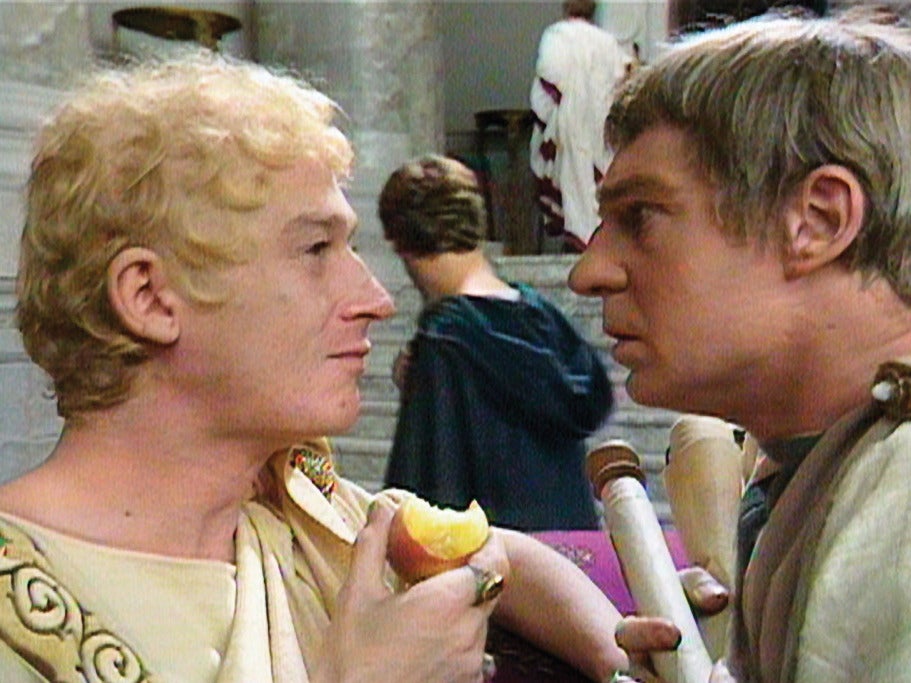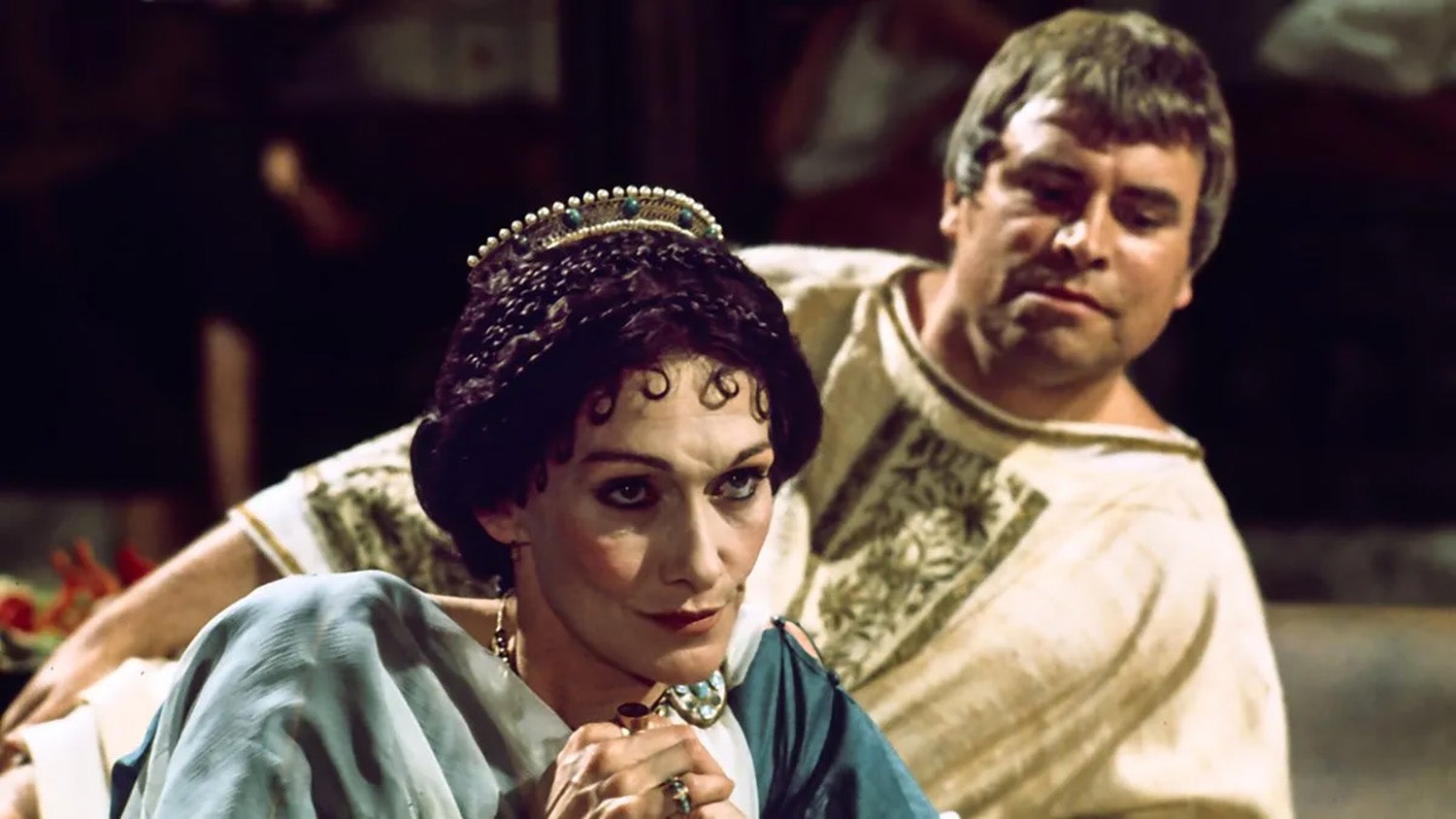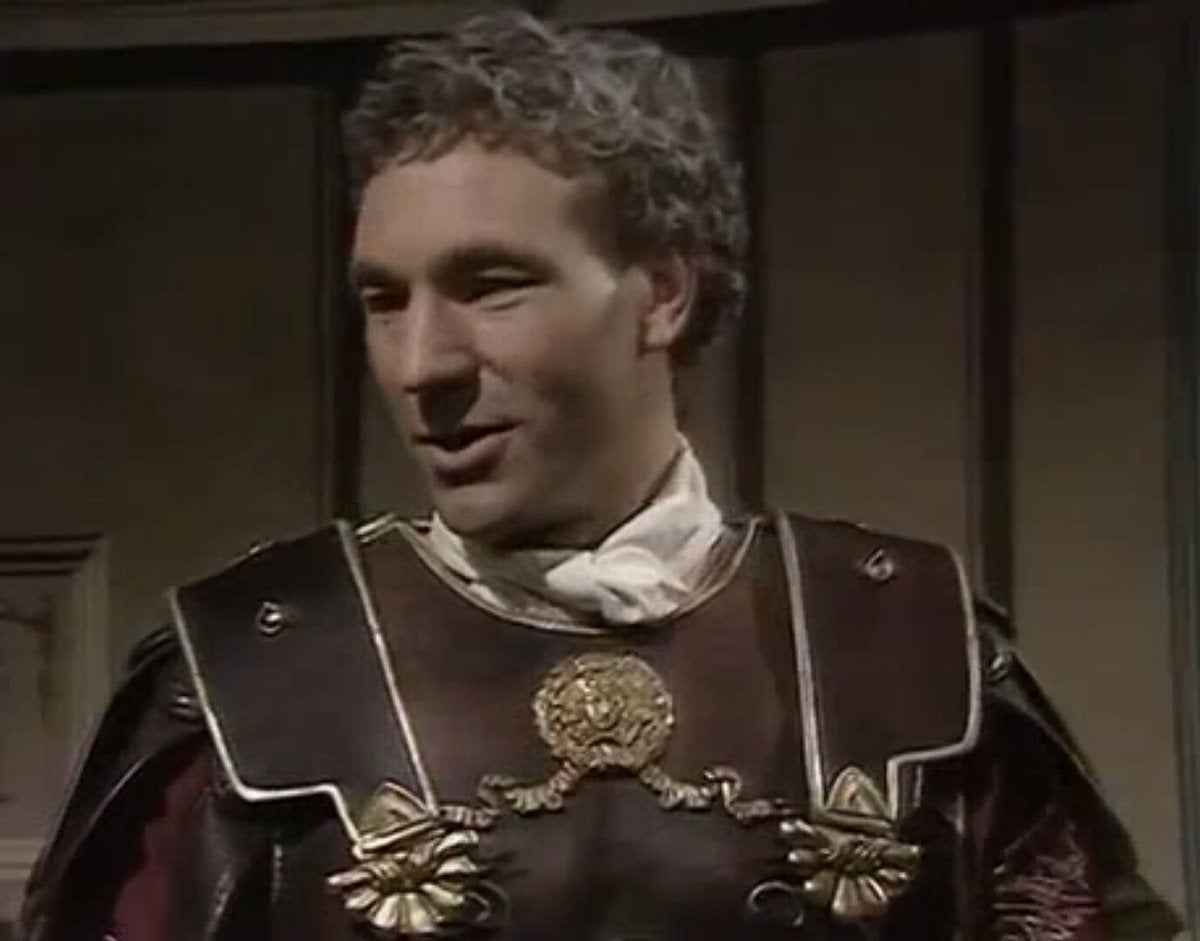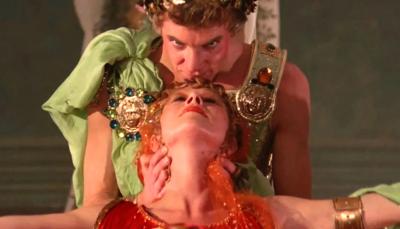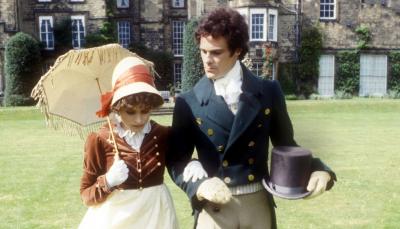Classics Revisited: 'I, Claudius' (1976)
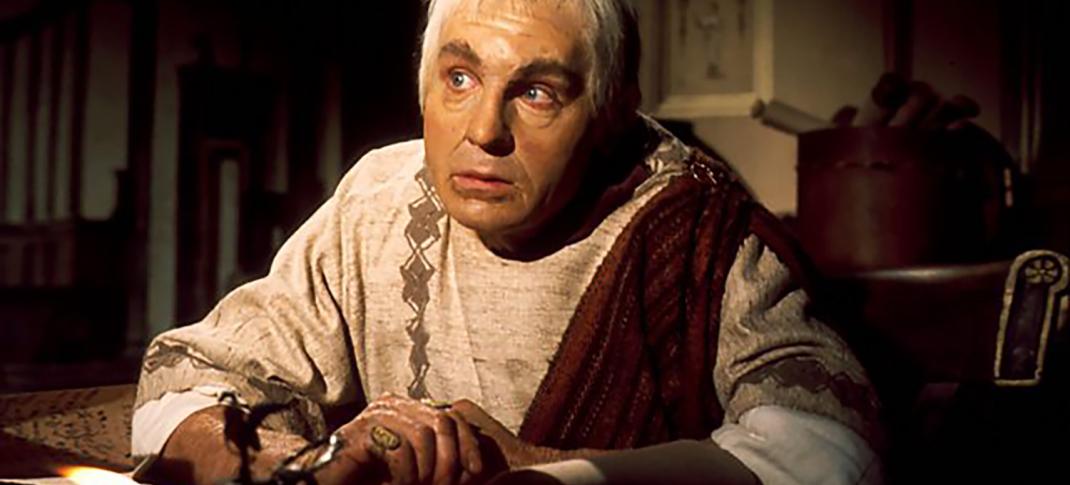
Derek Jacobi in 'I, Claudius'
Masterpiece
There’s something arresting about the texture of I, Claudius. Watching the legendary BBC miniseries from 1976 that — with plenty of cynicism and snark — charts the conspiracy and coups of the first four emperors of the Roman Empire, you’re struck by the theatricality of the performances, the sets, and the make-up. For a cost-conscious ‘70s British drama (staged and blocked expertly by director Herbert Wise), leaning on the stateliness and thriftiness associated with a stage production is a no-brainer – the 12-episode serial fills its sprawling cast with thespians pulled from the ranks of the Royal Shakespeare Company, who sell the warm hospitality and intelligence of the Roman Imperial clan, all while their lasciviousness, treason, and paranoia eat them from within.
In the years before HBO budgets could commit to the degree of historical detail we see in Rome, Game of Thrones, or The Gilded Age, this Roman drama relied on two things to sell its epic scope: performances oozing with venom and emotion, and sharp, compelling scripts, adapted from the 1934 and 1935 novels of English author Robert Graves by screenwriter Jack Pulman.
The series was shot on standard television cameras for color broadcast TV – EMI 2001s, which were also used on longstanding BBC programs like EastEnders and Top of the Pops. The video images rendered by these big, clunky TV studio cameras lend I, Claudius an immediate and striking edge: the colors are washed but the faces are sharp, often with pools of light on the actor’s pale faces, these emperors, usurpers, and heirs feel present and urgent in front of us, calling to us from their fifty-year-old echoey sets and darkened chambers, hoping they will evoke a historical period some 2000 years ago with sheer will, dramatic precision, and the knowledge that tales of ambition, ego, and scandal will always hook audiences.
Enter Claudius (Derek Jacobi), the great-great-grandnephew of the assassinated dictator who triggered Rome’s imperial debacle in the first place. Claudius is affected by a severe stutter and a physical disability that causes a limp, and he narrates the highs and lows of the Julio-Claudian dynasty from the safety of his elderly years.
The episodes come with flash-forward scenes that bookend each installment, set after his forebears, Augustus, Tiberius, and Caligula, are long gone. Still, the memories of how the emperors were toppled linger for the nervous, academic Claudius, and his twitchy paranoia hang over the royal court intrigue that breeds in every minute of the 10-hour serial.
When a young Claudius meets two famous Roman historians, Livy (Dennis Carey) and Pollio (Donald Eccles), early in the series, he gets to fanboy over his favorite writers and receives some pretty crucial advice: exaggerate his disability, feign ignorance, and play the fool to survive. No-one’s fate is inevitable in I, Claudius (well, unless you know everything about early Roman Imperial history, in which case none of the betrayals, poisonings, and executions should surprise you) – a tyrant’s will is a fickle thing, and half the characters of any given episode are competing to be the most cutthroat schemer.
Rome’s nascent imperial years are full of power-hungry day-players, some more nakedly malicious than others – Rome’s first empress Livia (Siân Phillips), Imperial bodyguard Serjanus (Patrick Stewart), and Claudius’ wife Messalina (Sheila White) are egomaniacs who love the new empire’s perpetual instability because it benefits their wild ambitions, as opposed to the noble characters who want to bring back the Republic, but are too sensible and level-headed to outmaneuver their imperial rivals.
Here’s where we run into the greatest problem with I, Claudius: the show has a women problem. (Granted, Ancient Rome had a women problem.) I, Claudius attempts to address the rigid patriarchy of Roman society by granting some of its female characters an equal degree of powerlust and intelligence as their doomed male cohorts. But though the male characters enjoy a range of moral fiber, the majority of the women in I, Claudius conform to tired stereotypes of female characters in period dramas: narcissistic, lust-craved, shrewish, cold, hysterical.
It is stressed that Livia (who was recently given a fairer shake in MGM+’s Domina) is a bad mother, a dereliction of duty that feels odd for the series to care about, seeing as none of the men make particularly good fathers – certainly not Augustus (Brian Blessed), nor Caligula (John Hurt), whose paranoid mania pushes him to preemptively, gruesomely thwart his unborn child from every succeeding him.
The psychological plotting of I, Claudius is broad and heavily influenced by Graves’ embellished interpretation of history. In reality, Caligula’s madness is contested, as is Livia’s barbarism, and even Graves and Pullman’s depiction of Claudius’ unlikely survival feels less impressive than they may have intended. This Claudius is portrayed as one of Caligula’s closest advisors (as much as one can advise a tyrant who thinks he’s a god), and isn’t so much doing damage control as he is placating Caligula’s whims to avoid losing his head. Claudius’ moral spine only becomes pronounced in the final few episodes of the series when he’s reluctantly elected emperor and has to school a flock of haughty, ineffective senators.
By this point, the wind is out of I, Claudius’ sails a bit — it’s a far more impressive and entertaining show in the first half during the reigns of Augustus and Tiberius, not least because the conspiracy plotting is less repetitive and the characters feel more grounded in their faults and neuroses.
That said, there’s no chance of finishing I, Claudius without reflecting that you’ve eaten a meal fit for a king (Rome hasn’t had one of them since 509BC, mind you). It’s a sumptuous and volatile dramatic feast packed with wall-to-wall British icons, proudly showcasing its fascination with the fragile and bloody pursuit of power, and it laid the groundwork for every violent and explicit historical fiction series of the modern era.
All episodes of I, Claudius are streaming on Acorn TV.

